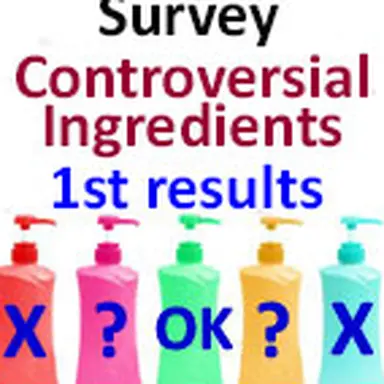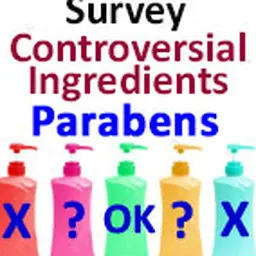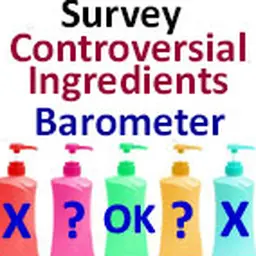
In June 2015, CosmeticOBS-L'Observatoire des Cosmétiques conducted a survey of its web users on controversial cosmetic ingredients*. Which ones are best known and identified? What are they reproached for? Lack of information and evaluation of packaging indications, guarantees of organic labels, requests for bans and alternatives… Here are the first results.
Parabens: the most well-known, recognized, and controversial
Parabens are the cosmetic ingredients that have received the most media coverage since 2005, and they are the most well-known among those pointed out as harmful, as 98.5% of survey respondents state they know them, ahead of aluminium salts (95.7%), silicones (93.9%), and UV-filters (86.1%).
They are also part of the best recognized controversial actives, along with methylisothiazolinone and phenoxyethanol, as consumers can spot them in the lists of ingredients: 81.5% of the people surveyed rightly identify them as preservatives, and they are mainly reproached for being endocrine disruptors and carcinogens. If 80% of the participants think there are substitutes available to replace them in beauty products, only 48.6% wish they were completely banned.
In the consumer barometer of the ingredients deemed the most controversial, parabens are ranked 5
th
, with a score of 80.6%. They are behind
formaldehyde and formol releasers
(91%), methylisothiazolinone (90.2%), aluminium salts (88.1%), and triclosan (84.1%).
Lack of information on controversial ingredients
Despite the numerous issues covered by the media, mainly on television and the Internet, only 17.6% of the people surveyed declare they think they are informed enough by the press on the controversial ingredients used …















